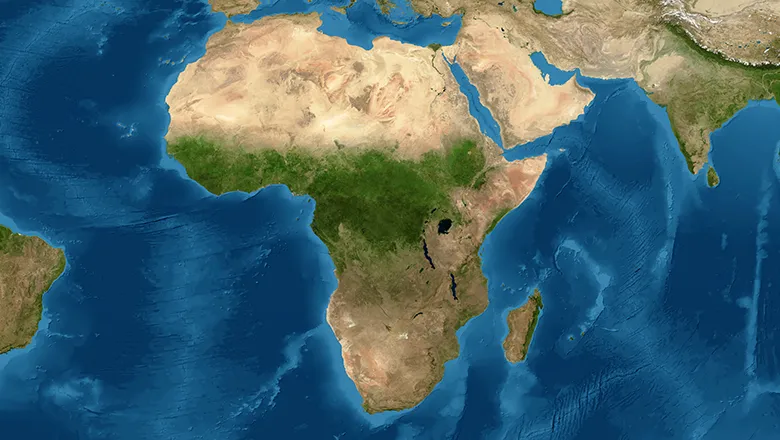The threat to jobs will not be limited to agricultural sectors but are likely to be felt in other areas of African economies, particularly nascent manufacturing industries
Researchers
20 September 2021
The paradox of EU trade policy and migration from Africa
A new study argues that the European Union’s efforts to reduce irregular migration from Africa are being hindered by its own trade policies, which are damaging businesses and forcing people to seek opportunities by crossing the Mediterranean Sea.

Dr Mark Langan, from King’s College London, and Dr Sophia Price, from Leeds Beckett University, contend that the EU’s championing of liberalised trade with African nations through Economic Partnership Agreements (EPAs) is creating conditions where migration actually becomes more likely by those seeking better lives.
Instead of creating jobs and development in Africa, the academics found that, in sectors such as agriculture and manufacturing, EPAs had led to ‘import flooding’ of cheap goods from EU nations, forcing producers out of business and encouraging young workers to migrate in search of stable employment.
The academics said: “There is a paradox inherent within the EU’s perspective on trade, development and migration. Rather than dealing with the ‘root causes of migration’ by creating jobs, EPAs pose a real threat to job intensive, import-competing sectors.”
The findings were revealed in the study, Migration, development and EU free-trade deals: The paradox of Economic Partnership Agreements as a push factor for migration, published in the journal Global Affairs.
As part of the study, the academics spoke to farmers, trade union and civil society representatives in Ghana who reflected concerns about the damage being done to domestic agricultural businesses through EPA agreements with the EU and the associated affect on migration.
The academics said: “Poultry farmers warn that the EU’s trade policies are not commensurate with its desire to limit migration from Africa. On the contrary, job losses in sectors such as poultry stimulate rural-urban migration in African countries, followed by migratory attempts to reach Europe.
“The threat to jobs will not be limited to agricultural sectors but are likely to be felt in other areas of African economies, particularly nascent manufacturing industries.”
The academics argue that alternative approaches, such as reconsidering the reciprocal terms of the EPAs, would offer more protection to smaller producers in Africa, thereby allowing better opportunities for workers and reducing the push factors that lead to migration.
You can read the paper in full here.

